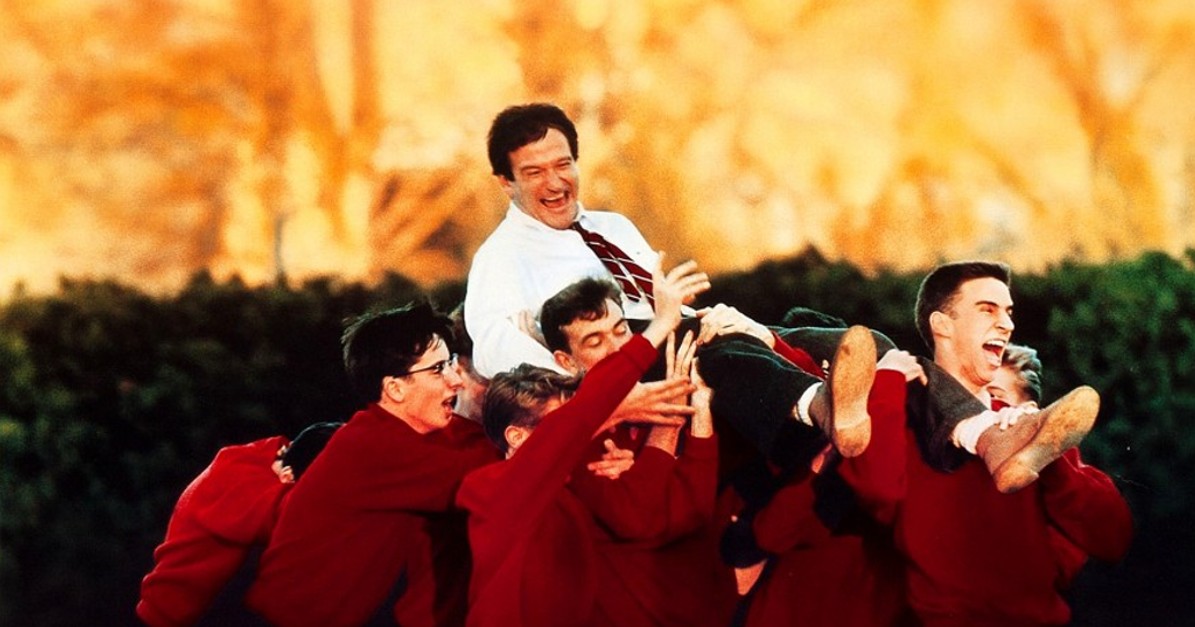Over this past weekend I found myself watching Dead Poets Society. While I know many educators who have conflicting views on the film, I’ve always found it inspiring. It fits into that certain genre of teacher movies that remind you how the act of teaching can inspire students to reach outside themselves. Not to mention that, as an enduring bookworm, I love any film that shines a light on great works of literature.
Near the beginning of Dead Poets Society, Robin Williams’ character delivers an important lesson to his students. He reminds them that knowledge and passion do not exist in silos. Words and language can be just as important to studying business or medicine as they are to studying poetry. It’s a lesson that I fear many modern students are in danger of missing. To paraphrase the words of Mr. Keating, STEM is a noble and necessary pursuit, but we need to create strong readers if we hope to build strong thinkers.
Words Can Change the World
As teachers, we know better than anyone the importance of keeping a well-stocked library. Providing the opportunity to read is just the first step though. We need to give our students the opportunity to explore a wide variety of literature. We should encourage students to pick up books that will challenge as well as inspire them. Books that will open new doors to the way they think and spark their curiosity, creativity, and critical thinking!
Here are just a few suggestions to get you started:
- Poetry: One of the great things about Dead Poets Society is that it shows viewers that young men can love poetry. That’s not a message you typically hear in today’s culture. Introduce your students to the work of celebrated poets like Robert Frost and Maya Angelou. Teach them that poetry is for everyone, regardless of gender or background.
- Comic Books: I’ve written about the importance of keeping comics in the classroom more than once. Comics and graphic novels have been shown to increase interest in reading, improve student vocabulary, and provide positive representation for readers. They can also lead students through difficult issues by helping them understand social-emotional themes. Best of all, they’re really fun to read!
- Classics: Classic books can be a tough sell to students. They’re often portrayed as homework rather than exciting stories to be shared. Nevertheless, the classics are “classic” for a reason. Help students see how exciting these books are by sharing some of your favorites. Consider having the class act out a scene from one of Shakespeare’s plays. Show that that these timeless works have plenty to offer the curious reader.
- Biographies: History is filled with extraordinary people who often get overlooked. You can solve this problem by including a few biographies in your class bookshelf. Whether it’s Ada Lovelace, the Queen of Computing, or Junius G. Groves, the Potato King of the World, these real-life heroes can encourage your students to work hard and chase their dreams.
Contribute a Verse
This season, take a moment to organize your bookshelf and celebrate the wonders of reading alongside your students. Find a book which speaks to them and encourage them to chase their passion for learning through the written word. Whether they ultimately pursue an interest in science, math, technology, or engineering, becoming a strong reader will teach them to be a strong learner. We all get to contribute a verse to the poetry of life. Let’s help them write a good one!
We hope you are all staying healthy and safe during this difficult time. For more free educational resources simply follow this link. If you enjoyed this blog post, don’t forget to subscribe!
*Image courtesy of the Dead Poets Society.

